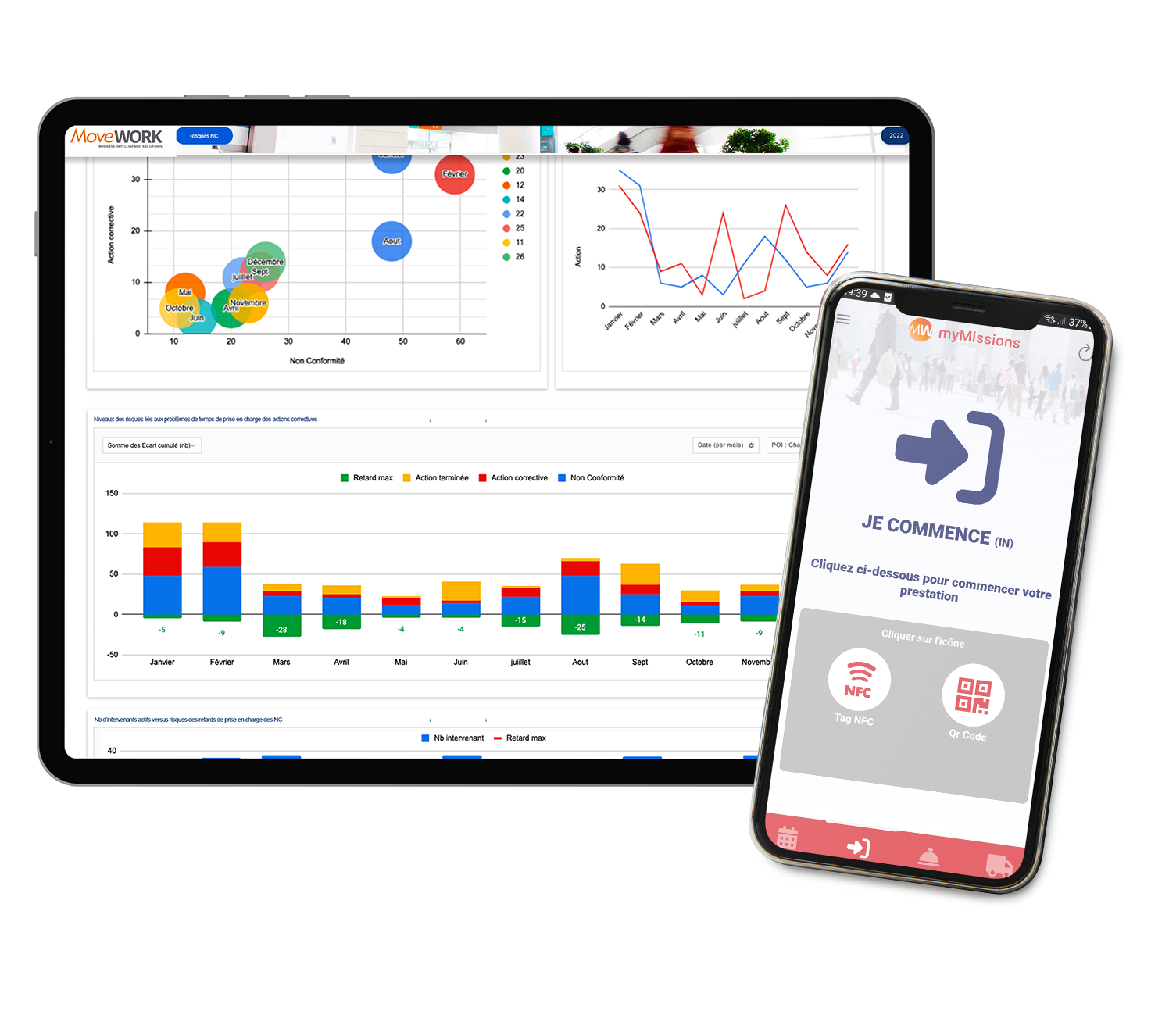Whether it’s for managing green spaces, technical maintenance, or office cleaning, using an external provider has become a common practice for many businesses. To avoid misunderstandings and ensure a smooth collaboration, it is essential to formalize this relationship with a well-structured service contract. But what are the rules in effect to govern these agreements and effectively protect your interests? In this article, discover our advice and an overview of the essential rules for establishing compliant service contracts.
What is a service contract?
A service contract is a written agreement between a service provider and a client, which defines the services the provider must deliver to the client who employs them. This type of contract covers services such as maintenance, cleaning, or security. It details the actions the provider must perform, including the timeline, and the cost, while specifying the responsibilities of each party.

This document is very important as it helps avoid misunderstandings and ensures that everyone is on the same page. In case of a dispute, it also serves as a reference to protect the rights of both the service providers and the clients.
Content of a service contract
A contract is a legal document, so it should not be taken lightly. It includes important clauses for the continuation of the collaboration, which is why it is crucial to thoroughly understand the implications of each point in the document. For a service contract, you should find certain key elements, such as:
1. The duration of the contract: It specifies the period during which the services will be provided, including the start and end dates. This section may also include conditions for automatic renewal or early termination, allowing both parties to know what to expect if circumstances change.
2. Description and obligations of the parties: The description of the services and the obligations of the parties are essential to precisely define what is expected from the provider and the client. The contract should include a detailed description of the services to be provided, the objectives to be achieved, the performance indicators to be measured, as well as the specific responsibilities of each party.
3. Confidentiality clauses: These are very important, especially when sensitive or strategic information is shared as part of the service. These clauses ensure that the exchanged data will not be disclosed, thus protecting the interests of both parties.
4. Intellectual property: If the service involves the creation of content, software, or concepts, the contract must specify who holds the rights to the creations or results of the work, and under what conditions these rights can be used or transferred.
5. Liability and insurance: The contract should establish the limits of the provider’s liability in case of issues such as delays in delivery or defects in the quality of services. The provider may also be required to obtain specific insurance to cover potential risks associated with the service delivery.

6. Dispute resolution: This defines the procedures to follow to resolve conflicts in case of disagreement. It may include mediation, arbitration, or recourse to the courts, depending on the severity of the dispute.
7. Financial conditions: These detail the payment terms, the rates applied, the payment deadlines, as well as the penalties for late payment or failure to meet the set objectives.
8. Signatures of the parties: These signify the acceptance of the terms by both parties, making the contract legally binding and official. This final step confirms that all clauses have been read, understood, and accepted.
What are the benefits of a service contract?
A service contract offers you several benefits:
- Cost management: By setting financial terms in advance, you can anticipate and control the costs associated with the services. This helps you avoid unexpected budget overruns, overcharging by the provider, and manage your expenses more effectively.
- Legal protection: A well-drafted contract provides legal protection in the event of a dispute. It outlines the possible remedies and penalties for non-compliance with the terms, helping you assert your rights and obtain compensation if necessary. The terms defined in the contract reduce legal procedures and often represent non-negotiable legal clauses.
- Risk reduction: By clearly defining responsibilities and expectations, you reduce the risks associated with service delivery. You can be assured that the provider adheres to the standards and meets your requirements.
- Flexibility and adaptability: You can include revision or adjustment clauses in the contract, offering flexibility to adapt the services to your evolving needs or unforeseen circumstances.
Essential legal rules to know
To establish a service contract that complies with legal requirements, certain legal standards must be followed. These concepts clarify the conditions for providing the services, thereby ensuring unambiguous collaboration.
The legal framework of a service contract
The legal framework for a service contract requires that it be formed based on the free and informed consent of both parties and that it be entered into by individuals with the legal capacity to contract. The contract must also have a lawful and specific object, meaning it must pertain to services that are clearly defined and in compliance with the law.
Obligations of the parties
Next, the obligations of the parties in a service contract outline each party’s rights and duties. The service provider agrees to deliver the services defined in the contract and according to the agreed-upon quality standards. They must meet the deadlines and deliver the services under the specified conditions. On your side, the client is required to pay the agreed price according to the terms defined in the contract and to provide all necessary cooperation to enable the provider to fulfill their obligations, such as by providing technical plans or access to premises.
In case of failure to meet these obligations by either party, sanctions or remedies may be considered, such as contract termination or compensation.
Essential clauses
As with any contract, essential clauses must be carefully drafted to ensure that the collaboration proceeds smoothly and, most importantly, without conflicts:
- Precise description of the services to be provided
- Identification of objectives, deliverables, and deadlines
- Duration of the contract and conditions for termination
- Confidentiality clauses
- Intellectual property
- Liability and insurance
- Payment terms
All these elements are crucial to ensure that the contract is legally sound and will effectively protect your interests.
The limitations of a service contract
Non-compliance with the services provided, delays in work, damage to facilities… During your collaborations, you will encounter all sorts of unforeseen situations. Although service contracts serve as legal evidence to protect you in some cases, they also have limitations. These limitations can manifest in various ways, affecting the effectiveness and the contract’s ability to cover all possible scenarios.
- Inability to anticipate all unforeseen events: A contract can hardly anticipate all unforeseen situations or major changes. For example, the contract might not address the impacts of an unexpected absence of an agent.
- Limited liability clauses: Liability and indemnification clauses in the contract may be limited, which could restrict remedies in the event of a serious breach or significant damages.
- Ambiguities in interpretation: Even with careful drafting, ambiguities in the terms of the contract can arise, leading to misunderstandings about the interpretation of obligations or conditions, and resulting in conflicts.
How to verify the compliance of a service contract?
If you want to ensure you maintain good relations with your service providers, verify the compliance of your service contract with a specialist. Evaluate each clause point by point with a lawyer or a contract law expert to ensure that each clause is correctly drafted and transcribed. This step ensures that the agreement meets legal standards and the expectations of the parties involved.
- Audit: This involves examining each clause of the document in detail to ensure it complies with current laws and properly protects the interests of both parties. This includes checking the legality of the clauses, the accuracy of the service descriptions, the clarity of obligations and responsibilities, as well as the adequacy of the termination, confidentiality, and intellectual property clauses.

The MoveWORK Flow platform offers automated audit and reporting features that allow you to compare the results obtained with the contractual requirements, thus facilitating the correction of non-compliances.
- Tools and Resources: Some tools and resources can also be very useful. For example, ContractWorks is a contract management tool that allows you to store, organize, and analyze contracts to ensure compliance. Another tool, PandaDoc, provides features for creating contracts with templates that meet standards. For specific verification of the legality of clauses, LexisNexis is an online legal resource that offers access to a comprehensive database of laws and case law.
MoveWORK Flow: The tool to ensure compliance with service contracts
Si vous voulez des contrats de prestation de services conformes et qui répondent pleinement aux attentes de toutes les parties, la plateforme MoveWORK Flow est l’outil idéal ! Pourquoi ? Parce que MoveWORK offre un écosystème complet incluant des applications mobiles, des badgeuses, des kiosques connectés et une plateforme de pilotage, pour collecter vos KPI en temps réel. Ces outils vous offrent une vue d’ensemble précise de toutes les interventions des prestataires dans votre établissement et de leur conformité.
Connected devices for compliant service contracts
Are the agents on site? Have the tasks been performed correctly? MoveWORK Flow answers all your questions! Thanks to connected devices, you can track the arrival times, departures, and absences of agents, the actions completed, and their alignment with contractual commitments. All data is centralized on the platform in customizable dashboards. In case of anomalies, the platform automatically triggers corrective actions and notifies your managers and relevant contacts. This ensures that the services are performed in accordance with the standards defined in the contract.



Reports for complete visibility
MoveWORK Flow streamlines your audits by generating detailed reports on the services provided. Service tracking, quality control, handling of requests… All key performance indicators established in your contract are monitored in real-time. These automated reports provide clear visibility into the service provider’s performance and help identify any deviations from the contract terms. They can be tailored to your needs, your operational sites, or the type of service being monitored.
Take the lead, secure your service contracts with MoveWORK Flow!

